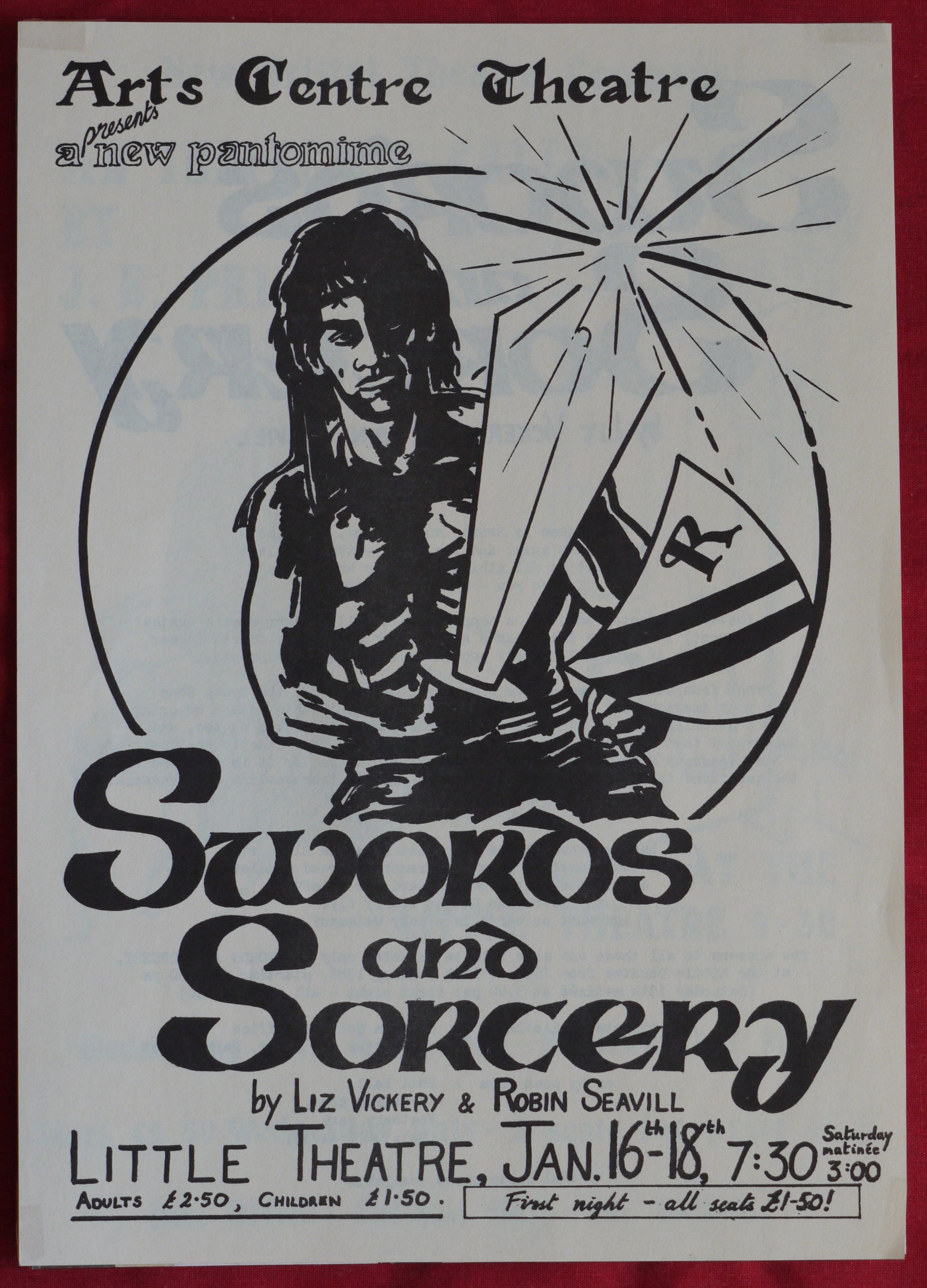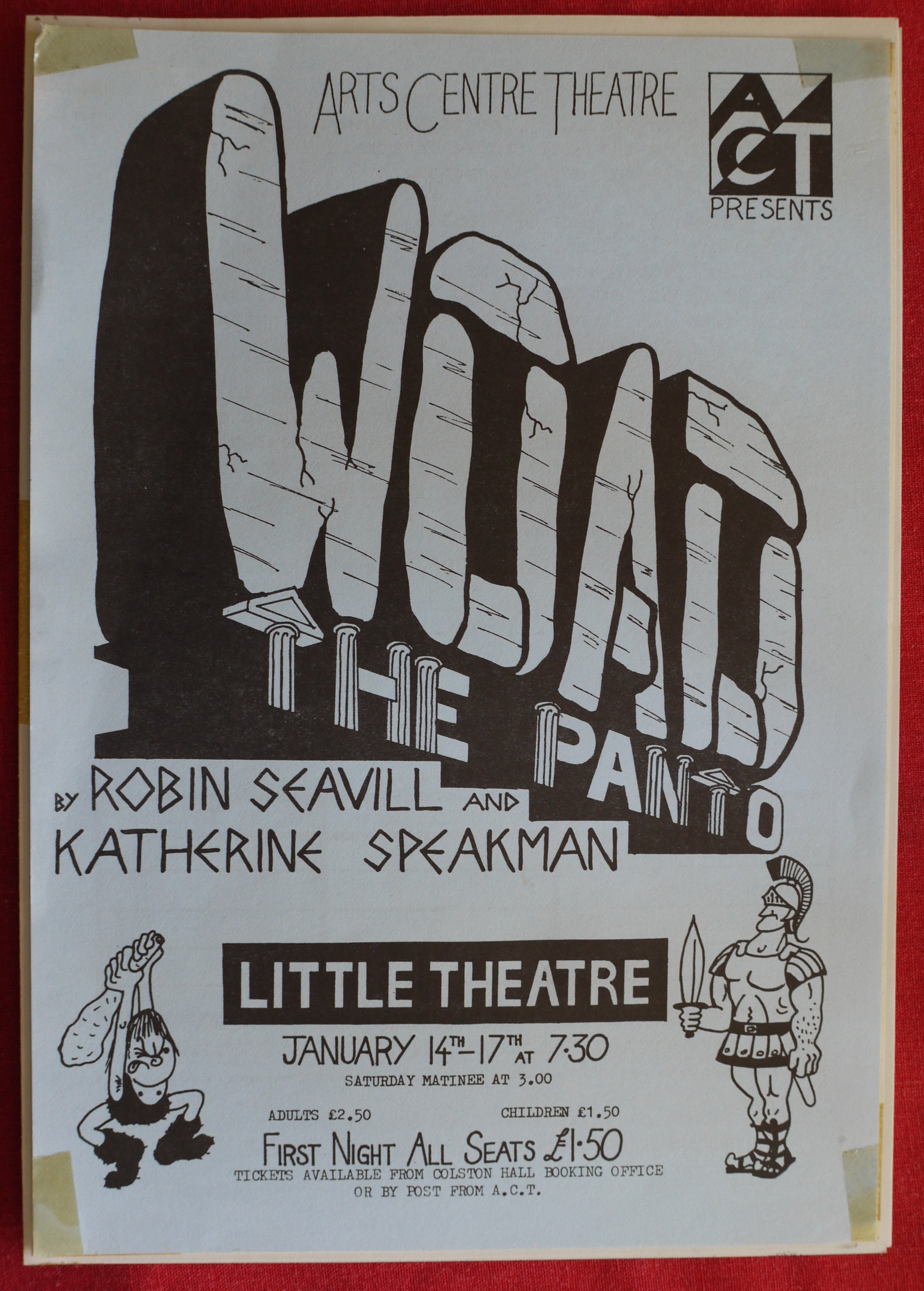Introduction



The pantos – or, as we used to call them, ‘seasonal entertainments’ – which the Arts Centre Theatre Company put on in Bristol in the mid-80s provided me with something I hadn’t realised I had missed up till that point: a writing partner. Until then it had always been me alone with the sheet of paper, and either something got written or it didn’t. With someone else to bounce ideas off of, and an actual slot in the Little Theatre’s schedule to provide a show for, there was more incentive to do a good job, and someone else to help you over the tough patches. Also, I was never much of an ideas man, so being able to develop characters and a plot with a congenial partner made that side of it so much more fruitful.
The intention was always to come up with something new, so these scripts are pantos only in the sense that there was always a certain cartoon quality to the playing amid the wholesale borrowing of tropes from the more traditional canon (“She’s behind you!” “Oh no he isn’t!” “Oh yes they are!” and so forth). I don’t know where we got our plots: The Treasure of Hula Hula was taking place in a draughty church hall so maybe we thought it would be nice to set it somewhere warm, like the South Seas. Swords and Sorcery was sort of Middle Ages, and Woad went back to the time of the Roman settlement of Britain. All showed a magisterial disregard for any kind of historical exactitude, but that was hardly the point.
My friend and ACT alumna Liz Vickery was my writing partner on the first two, and Katherine Speakman, who later became my real-life wife, helped with the third. The process was always the same. We would meet, hash out the background and characters together and cobble together a plot, then I would go away and do the typing. Unfortunately, the practicalities of life meant there was none of the Galton & Simpson/Clement & La Frenais scenario of my fantasies, where we would spend all day in a room together in a fug of fags, thrashing our way towards a finished product. I was probably too much of a control freak for that, and anyway, while I was languishing on the dole throughout this period, my co-authors had to spend their days earning an honest crust, so I was happy to take on the burden of doing all the actual writing.
The venue for both Swords and Woad was the now-defunct Little Theatre in Bristol next to the Colston Hall (as was, now the Bristol Beacon), and it played host to as many amateur companies as professional. Looking back, it’s intriguing to think that our ramshackle bunch was allowed into the same hallowed space whose boards at other times I myself had seen trodden by such luminaries as Daniel Day-Lewis, Michael Hordern, Felicity Kendal, Tim McInnerny and David Nielson.
After three happy years, the brief tradition of the ACT seasonal entertainment faded away, possibly under the sheer weight of its own cumbersome title, but mainly with the demise of the company itself, so there was never a fourth. There were plans. We had thought about the Wild West as a setting, and another time, Katherine and I spent a hilarious evening thinking up as many punning names as we could for some kind of farce set during the French Revolution (see Bastille or Bust). I even got as far as writing the first half dozen pages, which were set mainly around a public pissoir – which may give an early hint as to why the thing dribbled away…
But while we never got the audiences I felt all our hard work – and, why not, dammit, the quality of the shows – deserved, the collective effort was always, to me, worth it. The writing was good discipline, I had a blast exercising my Stephen Sondheim muscle fashioning the lyrics and even some of the tunes, directing the finished product was always great fun (control freakery again), and providing myself with a good meaty part was no hardship either. Believe it or not, the love scene between Rupert and Ellen in Swords was written long before my future wife, with whom I happily shared the writhing encounter, even turned up to audition. “She’s right in front of you!” “Oh no she isn’t!” “Oh yes she is!”
Oh yes, so she was…
Explore
-

Pantos
n. universal gestures or movements performed without words
